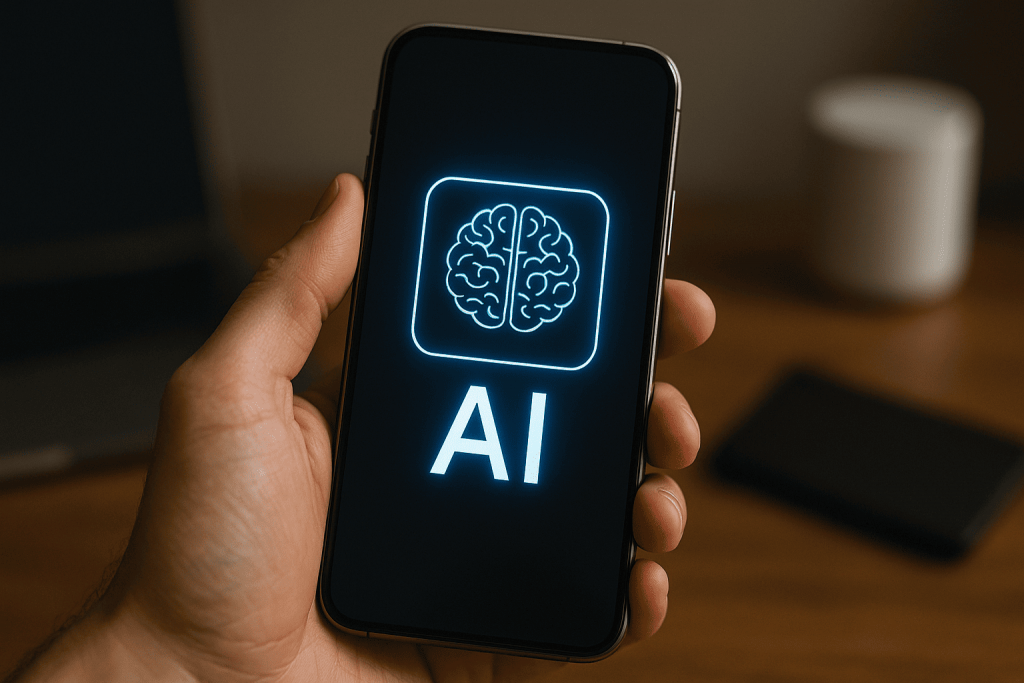The explosive rise of artificial intelligence has revolutionized everyday life, transforming mobile applications from simple utilities into sophisticated digital companions. Today, AI-powered mobile apps offer unprecedented convenience, efficiency, and personalization. From managing your daily tasks to enhancing creative projects, health tracking, language learning, and much more—having AI at your fingertips significantly enriches your mobile experience. This comprehensive guide explores the best AI-driven mobile apps across various categories, turning your smartphone into an intelligent, intuitive powerhouse.
One of the most significant impacts of AI-powered apps has been observed in productivity and task management. Apps like Notion, Todoist, and Any.do integrate advanced AI functionalities to streamline task creation, organization, and prioritization. Notion, for example, leverages AI to generate content outlines, summarize long documents, and automate task organization based on user behavior. Similarly, Todoist employs AI to suggest task dates, organize workloads intelligently, and recommend productivity improvements, significantly enhancing your workflow efficiency.
AI has also remarkably elevated mobile photography and video editing, turning ordinary smartphones into creative studios. Apps like Adobe Lightroom Mobile, Prisma, and Lensa employ cutting-edge AI algorithms for image processing, intelligent editing, and artistic transformation. Lightroom uses AI to intelligently adjust exposure, color grading, and noise reduction, ensuring professional-quality edits. Prisma transforms your photographs into stunning artworks inspired by classic styles, leveraging neural network technology. Lensa takes this a step further, offering powerful portrait enhancements, background replacement, and artistic filters, helping you achieve striking results with minimal effort.
Language learning and translation have also benefitted enormously from AI advancements. Duolingo and Babbel lead the charge by personalizing language education through adaptive learning technologies. Duolingo’s AI engine continuously analyzes user performance, tailoring exercises and review content dynamically to optimize learning speed and retention. Babbel similarly uses sophisticated algorithms to identify learning gaps, adjust difficulty, and provide highly personalized lessons. Additionally, translation apps like Google Translate integrate AI-driven neural machine translation, offering near-instantaneous, highly accurate multilingual communication, effectively breaking language barriers wherever you go.
Health and wellness apps significantly utilize AI for personal well-being. Apps like Headspace, MyFitnessPal, and Flo leverage AI-driven analytics and personalized recommendations to promote healthy lifestyles. Headspace offers customized meditation and mindfulness exercises based on user preferences, lifestyle patterns, and emotional states. MyFitnessPal uses AI to suggest personalized diet plans, track nutritional data, and analyze dietary habits to foster healthier eating patterns. Flo, an AI-powered period and fertility tracker, provides personalized insights based on detailed health analytics, predictive modeling, and individual user data, effectively supporting users in managing reproductive health.
AI-powered virtual assistants have also become central to mobile interaction. Assistants like Google Assistant, Siri, and Amazon Alexa enable seamless multitasking, voice-controlled navigation, personalized recommendations, and smart device integration. These virtual assistants use advanced natural language processing (NLP) and machine learning algorithms to understand context, predict user needs, and proactively assist in everyday tasks—whether checking the weather, scheduling meetings, sending messages, or controlling smart home devices. With AI-powered assistants in your pocket, your smartphone becomes a reliable companion, capable of managing complexities with remarkable ease.
Entertainment and gaming apps, too, have embraced AI in unique and exciting ways. Games such as Replika, AI Dungeon, and FaceApp exemplify innovative AI applications that enhance user engagement and creativity. Replika provides users with an emotionally intelligent chatbot friend, adapting interactions based on emotional feedback, conversation history, and individual preferences, delivering genuinely personalized experiences. AI Dungeon creates infinite, dynamic storytelling experiences powered by GPT technology, continuously evolving narratives based on user input. FaceApp, widely popular for its realistic aging and facial transformations, employs deep learning to produce incredibly lifelike and entertaining image alterations.
Moreover, AI-driven security and privacy apps significantly enhance mobile safety. Apps such as Avast Mobile Security and Norton Mobile Security utilize machine learning to identify and block sophisticated threats, proactively protecting sensitive personal information from malware, phishing, and cyberattacks. These apps continuously learn from emerging threats, updating their protective measures to ensure robust, real-time defense, giving users peace of mind in an increasingly connected digital environment.
The educational sector is not left behind in leveraging AI’s potential. Mobile learning platforms such as Khan Academy and Photomath use AI-driven personalization to support diverse learning styles. Khan Academy employs adaptive learning algorithms to customize content pacing, identify gaps, and provide personalized recommendations, significantly enhancing educational effectiveness. Photomath uses AI-powered OCR technology to solve math problems instantly, providing step-by-step explanations and adaptive practice sessions, making complex mathematics accessible and understandable for all learners.
Lastly, the realm of finance and personal budgeting benefits significantly from AI. Apps like Mint, Revolut, and Robinhood use artificial intelligence to provide intelligent financial insights, predictive analytics, and real-time budgeting support. Mint employs AI algorithms to track expenses, detect unusual spending patterns, and suggest personalized financial advice. Revolut utilizes AI-driven fraud detection and proactive security features, safeguarding your financial transactions. Robinhood uses sophisticated AI models to offer personalized investment recommendations and insightful analytics, empowering users to make informed financial decisions effortlessly.
Conclusion
The incredible power and versatility of AI-powered mobile apps have fundamentally transformed everyday mobile experiences. From productivity and creativity to health, learning, and entertainment—these intelligent applications offer unprecedented convenience, customization, and efficiency. As AI technology continues to evolve, so too will the capabilities of your smartphone, continually redefining what is possible in your pocket. Embracing the best AI-powered mobile apps ensures you not only stay ahead but also enrich your daily life, making technology a reliable partner in your ongoing journey towards personal and professional excellence.



funny af all these apps need net coz phones cant run compx ai😂
thats just how it goes with all this new tech stuff, lol 😂
ai apps in pocket?? 🔥 i hope life so easy now lol